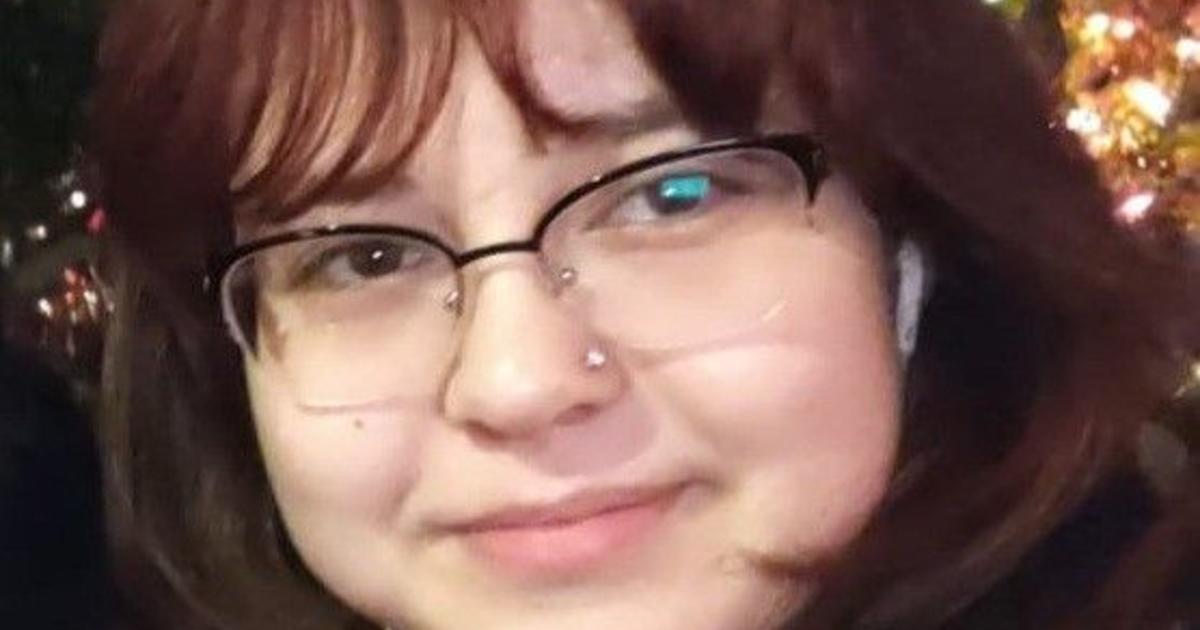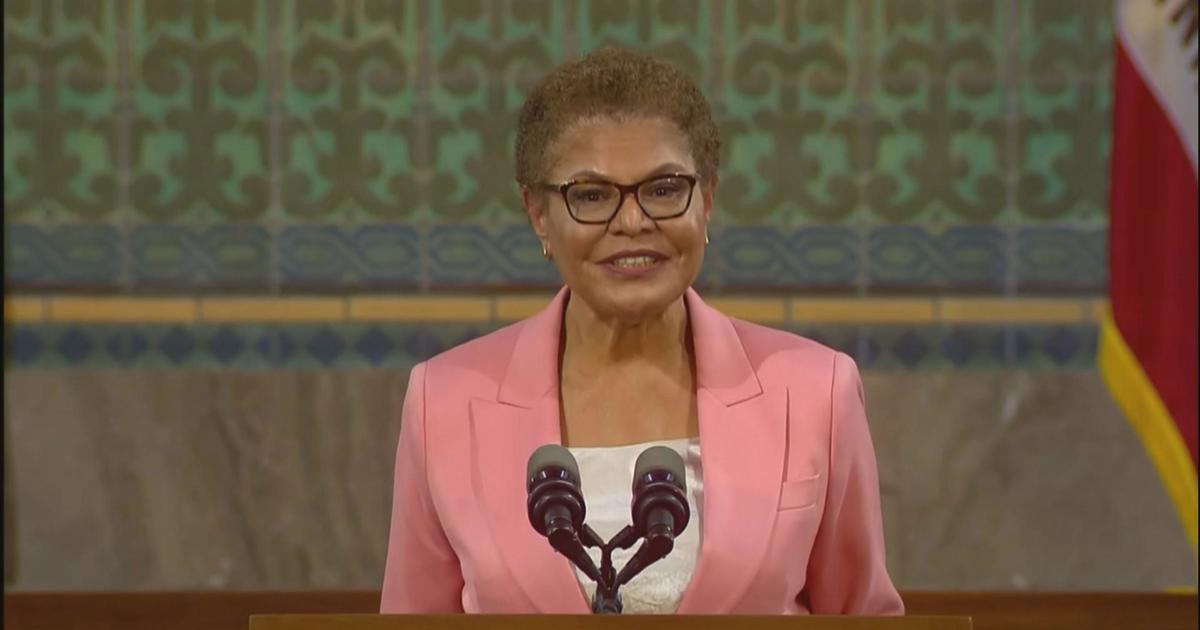5 Worst NBA Free Agent Signings Since 2000
LOS ANGELES (CBSLA.com) — NBA free agency can be when teams make their strongest push to sign players that will lead their teams to a title. The off-season is the time for general managers and team executives to earn their paychecks by signing players that will help win games. Signing players isn't their only task, however. The more daunting task that GMs face is deciding how long and how much money players should receive in their contracts. Below is a list of the five worst free agent signings in the NBA since 2000. Each of these players received a large contract, and then proceeded to greatly underachieve by almost all standards.
No. 1: Gilbert Arenas
The Washington Wizards signed guard Gilbert Arenas to a six-year, $111 million contract July 13, 2008. Arenas was an NBA All-Star for three straight years from 2004-2007, but his health and production would drop beginning in 2007 amid injuries.
During his All-Star years, Arenas averaged as high as 29.3 points per game (2006-07) and never shot below 41 percent from the field. It would get much worse for Arenas, unfortunately, as he only played in 13 games during the 2007-2008 season, and only two games over the course of the entire 2008-2009 season. After his final All-Star season in 2006-2007, Arenas would never shoot above 41 percent from the field again in his career, and was eventually traded to the Orlando Magic in 2010.
He would have a brief stint with the Memphis Grizzlies as well, before taking his talents to China to play for the Shanghai Sharks. Arenas was paid over $16 million for the 2009-10 season, which ranked 16th highest in the NBA that season. During that season, he only played 32 games while averaging 3.7 turnovers a game.
2007-08 was the last Wizards team to make the playoffs with Arenas on its roster, as it had a miserable stretch from 2008-2010, winning only 19 games in 08-09, 26 games in 09-10, and 23 games in 10-11.
Arenas attempted a number change, going from 0 to 9 and abandoning his former self-given nickname of "Agent Zero" before the 2010-11 season. Unfortunately for Arenas, the number change didn't translate into him playing any better, and he was traded the next year.
No. 2, Rashard Lewis
In 2007, Rashard Lewis opted out of his deal with the Seattle Supersonics, and the Orlando Magic would sign and trade for Lewis, giving him a maximum deal for six years and $118 million.
Lewis would be one of the highest-paid players in the league for the next five years, making $14.8 million in 2007-08, $16.4 million in 2008-2009, $18 million in 2009-2010, $19.5 million in 2010-2011, and $21.1 million in 2011-12.
Lewis was the second highest-paid player in the NBA during the 2010-11 season, and fourth highest-paid player the following year.
Lewis would help take the Magic to the NBA Finals in 2009, after he hit a game-winning shot against the Cavaliers in the Eastern Conference finals. However, the Magic would go on to lose the 2009 NBA finals in five games to the Los Angeles Lakers.
He never averaged over 18.2 points per game with the Magic after putting up three consecutive 20-plus point per game seasons in Seattle from 2004-2007.
Lewis would eventually be traded to the Washington Wizards for Gilbert Arenas. (Yes, the same Gilbert Arenas who signed a six-year, $111 million deal in 2008).
After losing in the NBA finals, the Magic would struggle with salary cap issues and were so desperate to get rid of Lewis' contract that they were willing to take on an injured and overpaid Gilbert Arenas in 2010.
No. 3, Jermaine O'Neal
When Jermaine O'Neal signed a seven-year, $126 million contract with the Indiana Pacers in 2003, it didn't look like that bad a contract at the time.
O'Neal was coming off a season in which he earned the NBA's Most Improved Player (2002), while averaging a double-double. O'Neal played in 77 and 78 games in his first two seasons after signing the large contract with Indiana, but the following four years he was with the Pacers, he played in only 44, 51, 69 and 42 games.
The injury-plagued big man would be selected to the All-Star team from 2001-2007, but his production began to slide as he was missing games and shooting poorly from the field. His production took a nose dive after the 2006-07 season in which he averaged 19.4 points per game to go along with 9.6 rebounds per game. In 2007-08, his averages dropped to just 13.6 points and 6.7 rebounds per game.
After injuries prevented O'Neal from ever playing one full season with the Pacers, they realized that the team could no longer succeed with O'Neal and his hefty salary on the roster. He was traded in 2008 to the Toronto Raptors. He would go on to play for the Heat, Celtics, Suns and Warriors, although he never was healthy enough to play a full 82-game season. After he played 70 games for the Heat in 2009-2010, he would not play more than 55 games in a season again in his NBA career.
No. 4, Joe Johnson
On July 10, 2010, Joe Johnson signed a six-year, $123 million contract with the Atlanta Hawks, which at the time made him the highest-paid player in the NBA. Johnson was coming off a season during which he averaged 21.3 points, 4.6 rebounds, and 4.9 assists per game.
He also shot 37 percent from beyond the three-point line and had ranked among the top of the league in made three pointers for the previous four seasons. Johnson had made the All-Star team for four straight years before signing this mega-deal, although the Hawks and Johnson would never make it past the Conference semifinals in the playoffs.
Although Johnson's production was actually very solid for a long time with Atlanta, he would not be the superstar that the Hawks front office had hoped for when they gave him the $123 million contract. He never averaged over 20 points per game after the 2009-10 season and would continue to stymie the Hawks free agent flexibility and salary cap situation for years to come.
Eventually, the Hawks would ship Johnson to the Brooklyn Nets in July of 2012, just two years after making him the highest-paid player in the NBA. Johnson's contract was backloaded, meaning he would get more money per year as time went on, and the Hawks couldn't continue paying him without getting the postseason results they had hoped for. In 2012-13 and 2013-14, Johnson had the NBA's fourth-highest annual salary.
No. 5, Josh Smith
In July 2013, the Detroit Pistons signed forward Josh Smith to a four-year, $54 million deal. The move was widely regarded as controversial across the league, because the Pistons already had Andre Drummond and Greg Monroe on their roster, and signed on for multiple years.
The plan for the Pistons was to play Josh Smith at the small forward position, creating one of the tallest lineups in NBA history. No one was sure if this would work, because Smith's natural position was power forward. Smith's tenure in Detroit was very short-lived.
After one full season in which he put up underwhelming numbers, the Pistons would later waive Smith during the 2014-15 season. The Pistons' plan had backfired, and the team did not make the playoffs despite lofty expectations going into Smith's first season.
In Smith's first and only full season in Detroit, he shot a miserable 26 percent from beyond the arc, while averaging a career-high 16 shots per game. Smith's contract was perhaps the last straw for former Pistons GM Joe Dumars, as he would step down about a year after signing Smith.



